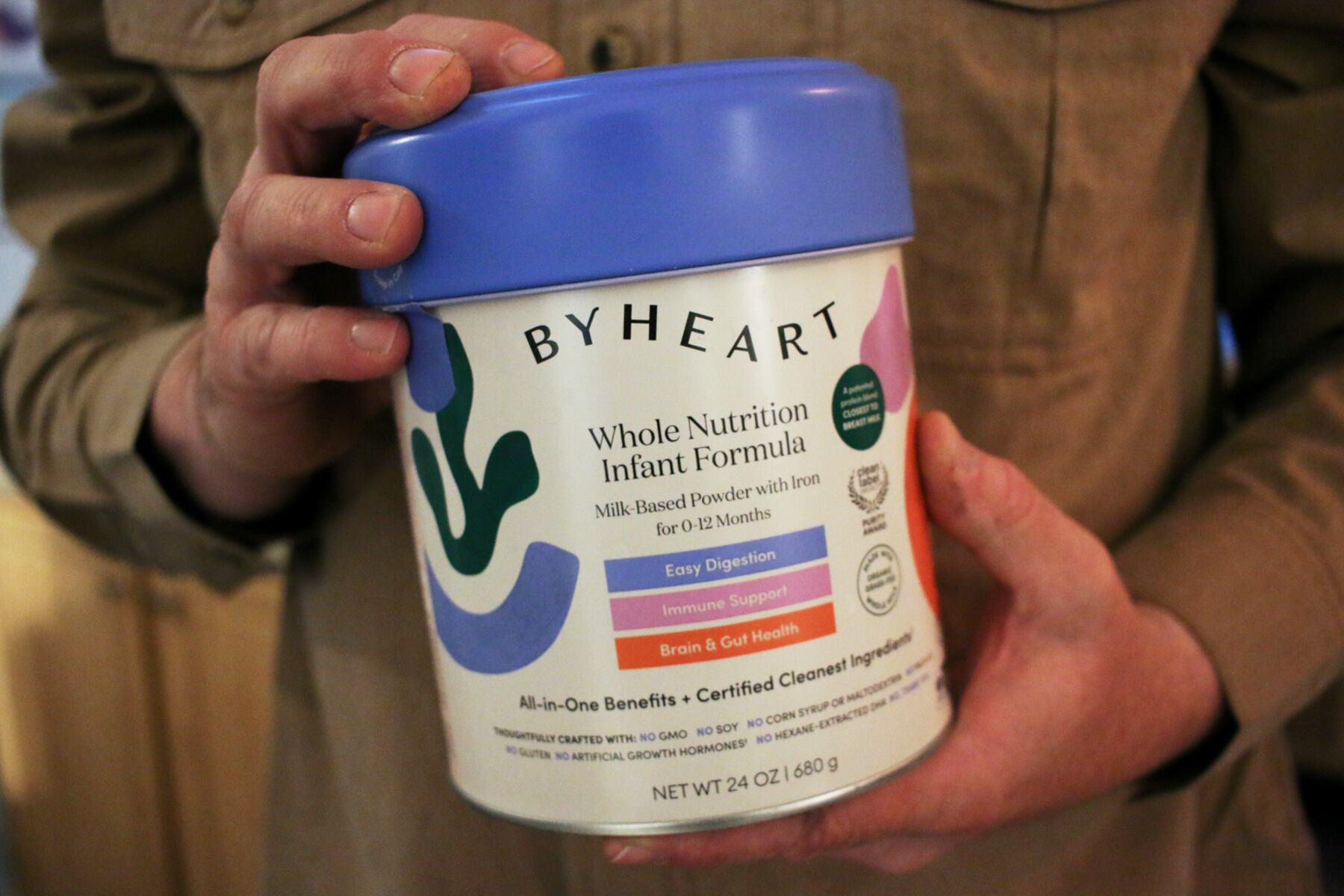Health
Outbreak of Infant Botulism Linked to ByHeart Formula Affects 37 Babies

More than three dozen infants have been affected by a recent outbreak of infant botulism linked to contaminated ByHeart formula, according to federal health officials. The Food and Drug Administration (FDA) reported a total of 37 confirmed or suspected cases in babies who consumed the formula since August 2023, with the latest case arising on November 19. Fortunately, there have been no reported fatalities associated with this outbreak, which was first announced on November 8.
ByHeart, a manufacturer based in New York, has since recalled all its products sold in the United States. The recall took effect on November 11, as the FDA began inspections at the company’s production facilities located in Allerton, Iowa, and Portland, Oregon. ByHeart holds a small share of approximately 1% in the U.S. infant formula market, having sold about 200,000 cans of its product monthly prior to the recall.
The FDA has indicated that symptoms of infant botulism can take up to 30 days to manifest. Affected infants, aged between two weeks and nine months, were all hospitalized after consuming the powdered formula. In one notable case, California health officials confirmed that a sample from an open can of ByHeart formula, used to feed an infant who became ill, contained the botulism-causing bacteria. The company has also acknowledged that laboratory tests confirmed contamination in some samples.
The outbreak has seen illnesses reported across a range of states, including Arizona, California, Idaho, Illinois, Kentucky, Maine, Massachusetts, Michigan, Minnesota, North Carolina, New Jersey, Oregon, Pennsylvania, Rhode Island, Texas, Washington, and Wisconsin. As a result, families of the affected infants have filed lawsuits against ByHeart in federal courts, alleging that the formula was defective and that the company acted negligently in its distribution. These lawsuits seek compensation for medical expenses, emotional distress, and other damages.
Infant botulism typically affects fewer than 200 infants in the United States each year, with 133 cases reported as of September 20, 2023, according to the Centers for Disease Control and Prevention (CDC). In contrast, there were 145 cases reported throughout the entirety of the previous year. The illness is caused by a type of bacteria that generates toxins in the large intestine, with spores present in the environment leading to serious health risks, including paralysis.
Infants are particularly susceptible to the infection due to their underdeveloped gut microbiomes, which cannot effectively prevent the spores from germinating and producing toxins. Exposure can occur through dust, dirt, water, or contaminated honey. Symptoms may take weeks to appear and include poor feeding, loss of head control, drooping eyelids, and a flat facial expression. Affected infants may exhibit a “floppy” appearance and experience difficulty swallowing or breathing.
While baby formula has been previously linked to sporadic cases of illness, this marks the first confirmed outbreak of infant botulism associated with powdered formula, as per research studies. The only known treatment for this condition is an intravenous medication called BabyBIG, which is derived from pooled blood plasma of adults immunized against botulism. Developed by California’s infant botulism program, BabyBIG is the only available therapy worldwide and helps reduce the severity of illness and shorten hospital stays for affected infants.
Despite the current crisis, health officials have indicated that there is no immediate danger of a shortage of infant formula, as ByHeart constitutes a minor portion of the overall market. This situation contrasts sharply with the severe shortages experienced in late 2021 and throughout 2022, when four infants fell ill from a different germ after consuming formula produced by Abbott Nutrition, resulting in two fatalities.
In 2022, ByHeart also recalled five batches of formula after contamination with cronobacter sakazakii was detected at the company’s packaging facility. Additionally, in 2023, the FDA issued a warning letter to ByHeart citing areas needing corrective action. During inspections of a Reading, Pennsylvania facility, inspectors found issues including mold, water leaks, and insect presence.
In response to this recent outbreak and the broader concerns regarding food safety, federal health officials have committed to overhauling the U.S. food supply. Health Secretary Robert F. Kennedy Jr. has directed the FDA to conduct a comprehensive review of the nutrients and ingredients in infant formula. This initiative, referred to as “Operation Stork Speed,” represents the first in-depth evaluation of infant formula ingredients since 1998. The FDA is currently gathering feedback from industry stakeholders, health experts, and the public to inform future steps.
-

 Technology5 months ago
Technology5 months agoDiscover the Top 10 Calorie Counting Apps of 2025
-

 Technology2 weeks ago
Technology2 weeks agoOpenAI to Implement Age Verification for ChatGPT by December 2025
-

 Health3 months ago
Health3 months agoBella Hadid Shares Health Update After Treatment for Lyme Disease
-

 Health3 months ago
Health3 months agoAnalysts Project Stronger Growth for Apple’s iPhone 17 Lineup
-

 Health3 months ago
Health3 months agoErin Bates Shares Recovery Update Following Sepsis Complications
-

 Technology5 months ago
Technology5 months agoDiscover How to Reverse Image Search Using ChatGPT Effortlessly
-

 Technology3 months ago
Technology3 months agoElectric Moto Influencer Surronster Arrested in Tijuana
-

 Technology2 months ago
Technology2 months agoDiscover 2025’s Top GPUs for Exceptional 4K Gaming Performance
-

 Technology5 months ago
Technology5 months agoMeta Initiates $60B AI Data Center Expansion, Starting in Ohio
-

 Technology5 months ago
Technology5 months agoRecovering a Suspended TikTok Account: A Step-by-Step Guide
-

 Health5 months ago
Health5 months agoTested: Rab Firewall Mountain Jacket Survives Harsh Conditions
-

 Lifestyle5 months ago
Lifestyle5 months agoBelton Family Reunites After Daughter Survives Hill Country Floods





















